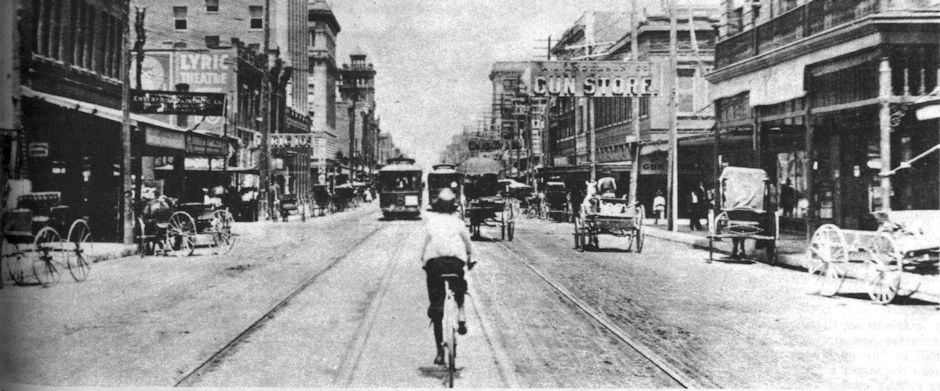The presidential election of 1912 was a rarity: four candidates on the ballot and three of them serious challengers. Incumbent President William Howard Taft was renominated by the Republican Party. After former President Theodore Roosevelt had failed to receive the Republican Party nomination, he created the Progressive Party (nicknamed the “Bull Moose Party”) and convened his own convention. The Democrats at their convention had taken forty-six ballots but finally had nominated New Jersey Governor Woodrow Wilson. Eugene V. Debs was the nominee of the Socialist Party of America.
Here is how the Star-Telegram covered election day:
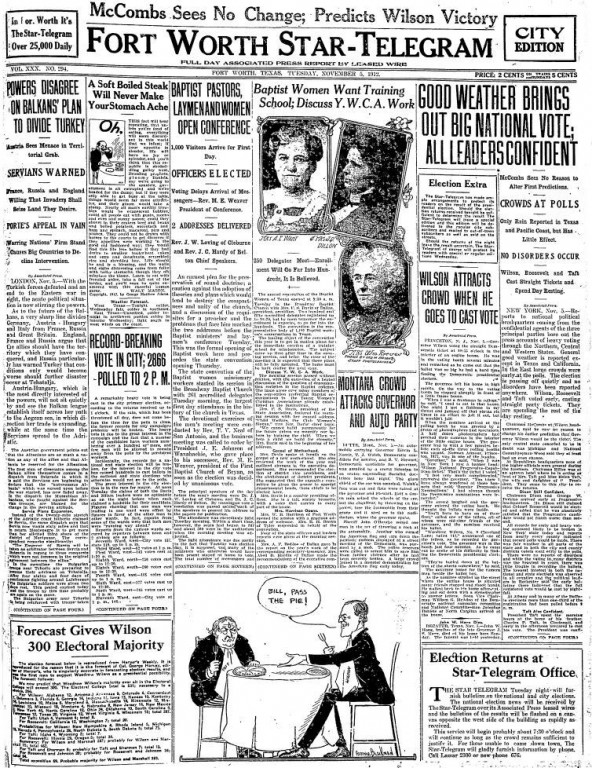 The election shared the front page with the Balkan War and the Baptist convention, which Fort Worth was hosting.
The election shared the front page with the Balkan War and the Baptist convention, which Fort Worth was hosting.
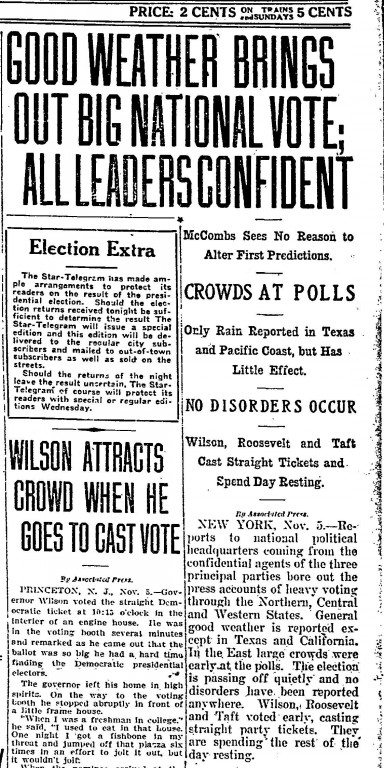 Then, as now, the media covered the presidential candidates as they cast their own votes.
Then, as now, the media covered the presidential candidates as they cast their own votes.
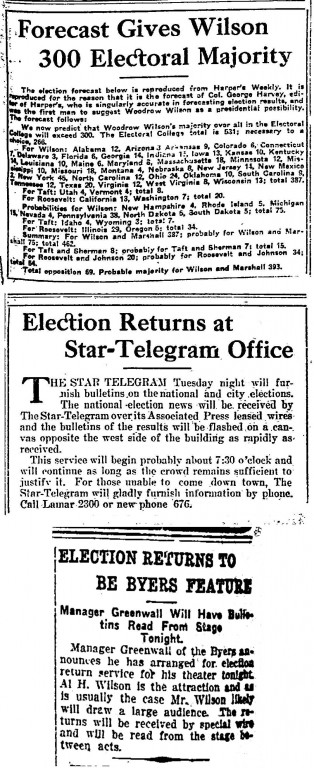 Election forecasting a century ago was not the science it is today. One expert endorsed by the Star-Telegram predicted 387 electoral college votes for Wilson. (Texas had twenty of the 531 electoral college votes; today it has thirty-eight of 538.) The election of 1912 was very low tech by 2012 standards. Voting was by paper ballot, box, and booth; communication was by telegraph and telephone. The Star–Telegram posted early election returns on a canvas on a wall of the building, then located at 8th and Throckmorton streets. At Byers Opera House on election night, returns would be read on stage between acts.
Election forecasting a century ago was not the science it is today. One expert endorsed by the Star-Telegram predicted 387 electoral college votes for Wilson. (Texas had twenty of the 531 electoral college votes; today it has thirty-eight of 538.) The election of 1912 was very low tech by 2012 standards. Voting was by paper ballot, box, and booth; communication was by telegraph and telephone. The Star–Telegram posted early election returns on a canvas on a wall of the building, then located at 8th and Throckmorton streets. At Byers Opera House on election night, returns would be read on stage between acts.
(Al H. Wilson was a popular singer and comedian. Hear him at http://www.loc.gov/jukebox/recordings/detail/id/1347/).
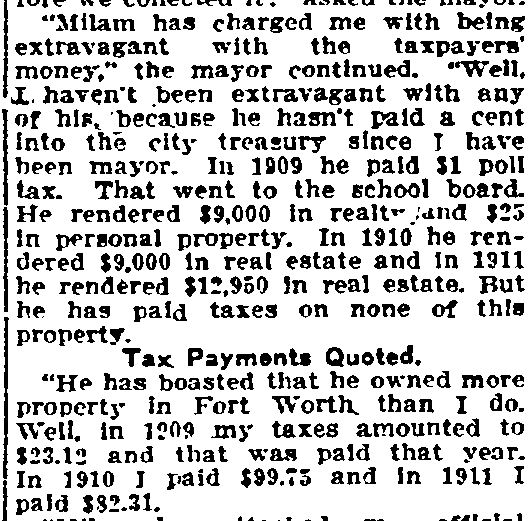 The election of 1912 was also a primary for Fort Worth mayoral nominees. Then, as now, candidates’ taxes were a campaign issue, although the dollar amounts were considerably lower a century ago. In his final speech, delivered on the courthouse lawn, incumbent Mayor W. D. Davis addressed the issue of taxes paid by himself and by his opponent, Robert F. Milam.
The election of 1912 was also a primary for Fort Worth mayoral nominees. Then, as now, candidates’ taxes were a campaign issue, although the dollar amounts were considerably lower a century ago. In his final speech, delivered on the courthouse lawn, incumbent Mayor W. D. Davis addressed the issue of taxes paid by himself and by his opponent, Robert F. Milam.
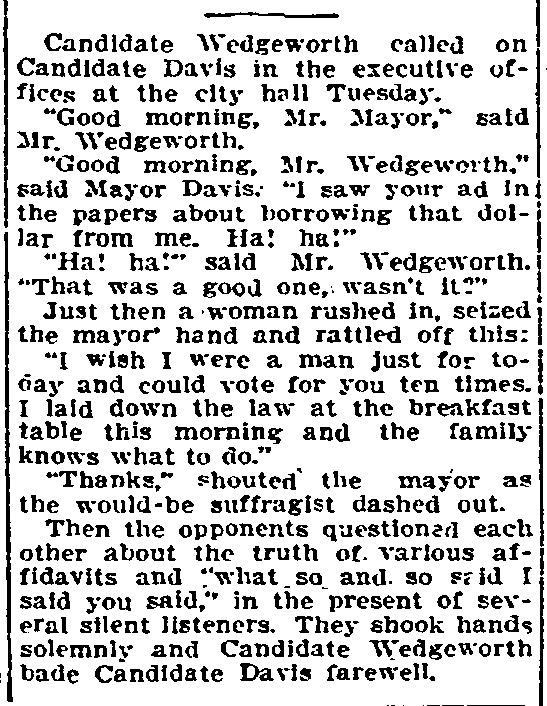 But for the most part, the mayoral primary race was polite, as this exchange shows.
But for the most part, the mayoral primary race was polite, as this exchange shows.
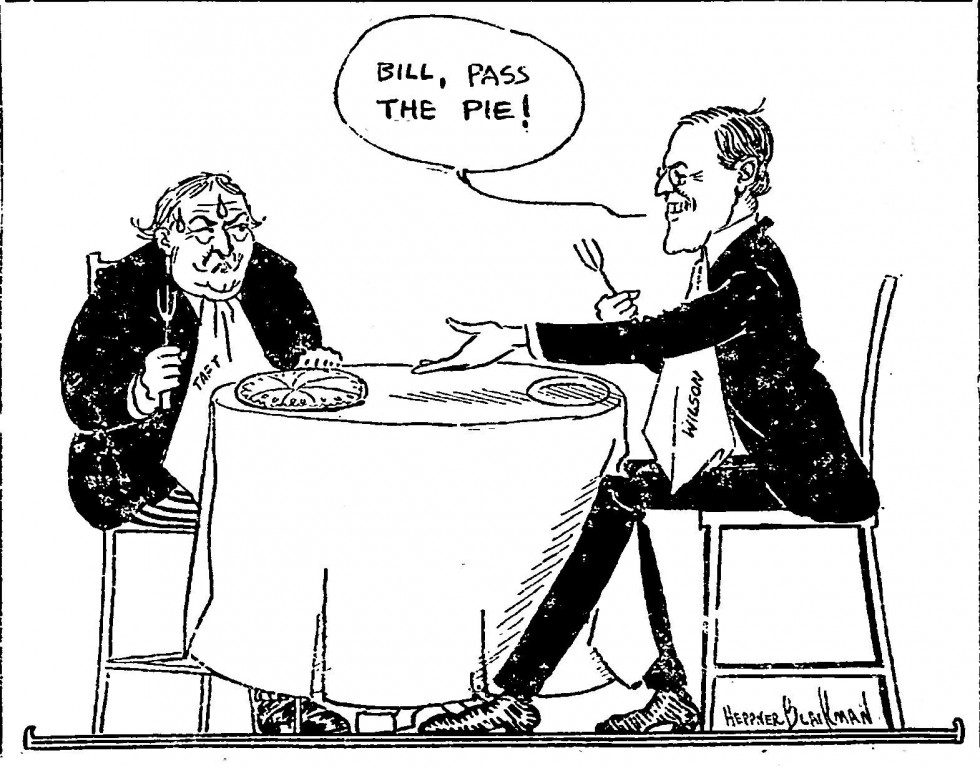 Heppner Blackman was the Star-Telegram’s first cartoonist. Cartoonists usually exaggerate physical features, but in this case, perhaps out of respect for the office, Blackman downsized the 330-pound Taft.
Heppner Blackman was the Star-Telegram’s first cartoonist. Cartoonists usually exaggerate physical features, but in this case, perhaps out of respect for the office, Blackman downsized the 330-pound Taft.
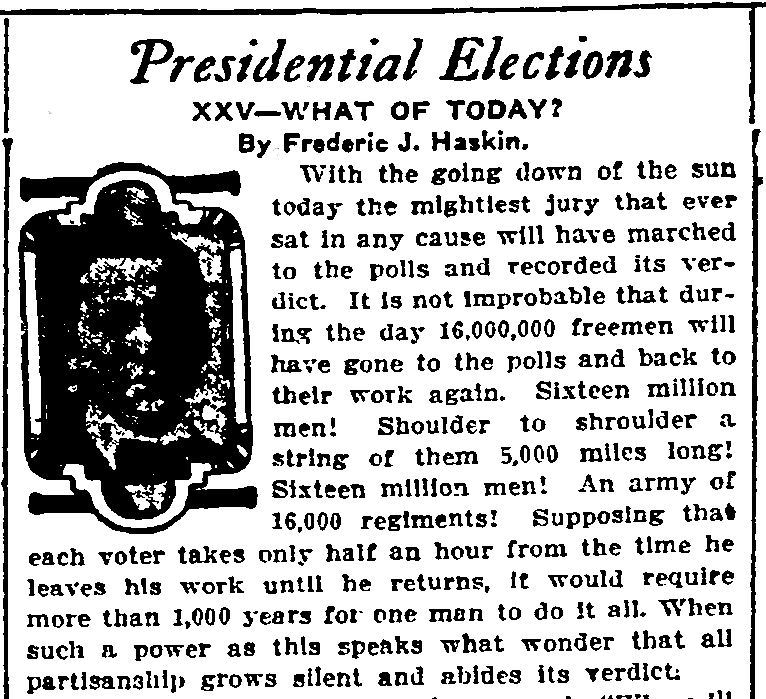 Note that this editorial on the importance of voting speaks in terms of men only. Women’s suffrage, granted by the Nineteenth Amendment, was still eight years away.
Note that this editorial on the importance of voting speaks in terms of men only. Women’s suffrage, granted by the Nineteenth Amendment, was still eight years away.
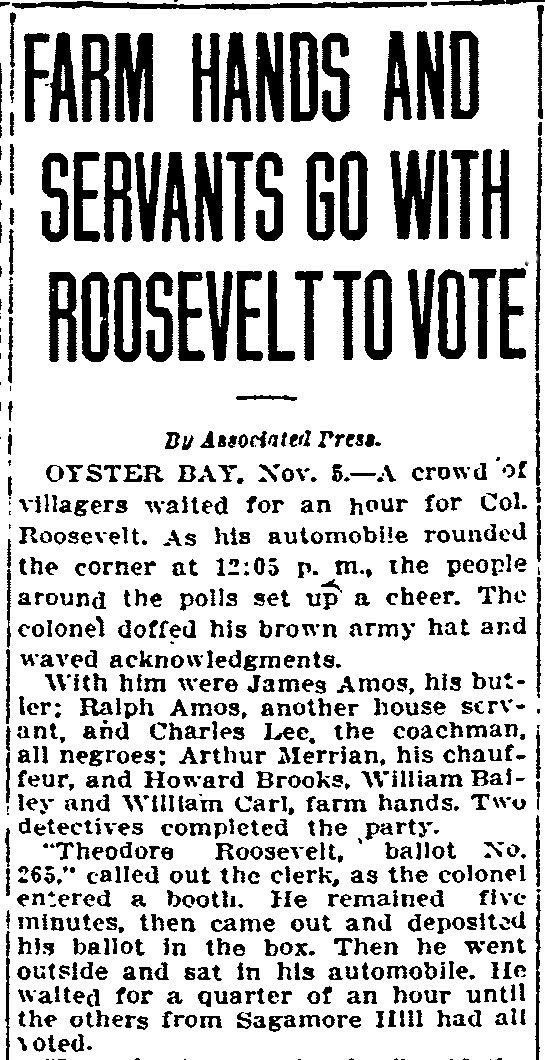 Candidate Roosevelt went to the poll with some of his farm hands and African-American domestic servants. The Fifteenth Amendment had given black men the right to vote in 1870.
Candidate Roosevelt went to the poll with some of his farm hands and African-American domestic servants. The Fifteenth Amendment had given black men the right to vote in 1870.
